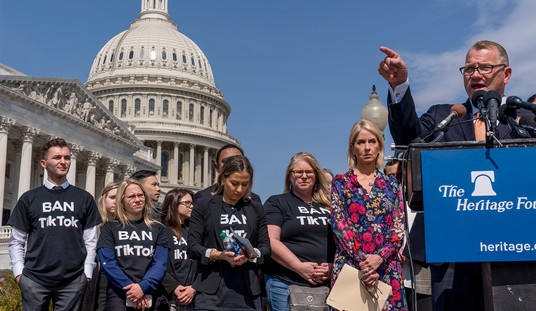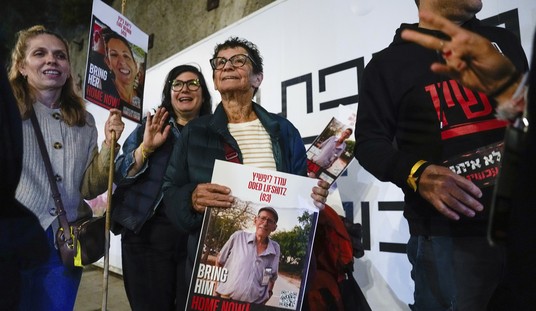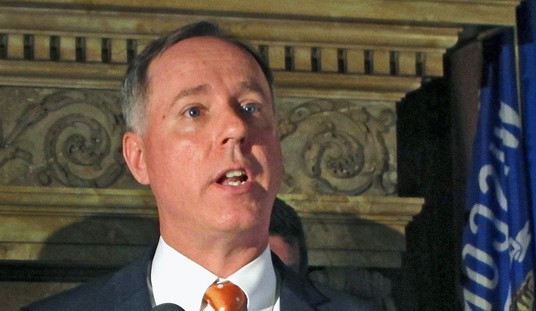There’s been plenty of criticism for Georgia Congressman Doug Collins following his decision to run for U.S. Senate. The NRSC called Collins’ run against Senator Kelly Loeffler shortsighted and selfish with Executive Director Kevin McLaughlin suggesting it would hurt Georgia for years to come. A little hyperbolic, even though Senator David Perdue is also up for re-election and Georgia’s possible status as a swing state in this year’s presidential election – depending on the poll.
One of the more bizarre lines of attack against Collins is his stance on justice reform. He’s been one of the lead champions of justice reform in Washington, supporting and sponsoring bills giving non-violent offenders a second chance and reducing federal prison spending. President Trump has made this reform a hallmark of his reelection campaign.
“Rep. Collins has worked closely with Rep. Hakeem Jeffries (D-NY) on radical criminal justice reform legislation,” Reagan McCarthy sternly warned on TownHall.com last week with the odd suggestion that had his bill passed, violent criminals would end up roaming the streets. “The Prison Reform and Redemption Act reaches further than President Trump’s First Step Act, with some arguing it endangers communities with dangerous provisions.”
A bit of a history lesson for McCarthy and those who are unfamiliar with justice reform activity in Congress. PRRA was a prison reform bill first introduced by Collins in July 2017. The approach was in contrast to Iowa Senator Chuck Grassley, who had reintroduced a more comprehensive approach in October 2017, the Sentencing Reform and Corrections Act, which included prison reform and sentencing reform. PRRA was the basis for the original version of the Formerly Incarcerated Reenter Society Transformed Safely Transitioning Every Person (FIRST STEP) Act that passed the House in May 2018.
Grassley modified the FIRST STEP Act by adding modest sentencing reforms based on those in SRCA and the reauthorization of the Second Chance Act. The Senate dropped the acronym but still called the bill the “First Step Act.” The Senate used S. 756 as the vehicle for the First Step Act, and the bill was signed into law by President Trump in December 2018.
PRRA, the House-passed FIRST STEP Act, and the version of the First Step Act that became law feature recidivism risk reduction programming and incentives for prisoners to reduce their risk of becoming repeat offenders. In other words, ways prisoners can reduce the likelihood of committing a crime after release from prison and rules for placement in prerelease custody involving earned time credits.
It’s here where McCarthy makes a fatal mistake in her criticism of Collins and PRRA. McCarthy opines the time credits release inmates early, however, this isn’t the case. Instead, prisoners are put into prerelease custody, meaning they are still subject to supervision by the Office of Probation and Pretrial Services or the Bureau of Prisons. This includes home confinement, halfway house lodging, and GPS monitoring if they’re allowed to attend work, perform community service, go to church, participate in recidivism reduction training, crime victim restoration activities, or receive medical treatment. It’s far from running around the community willy-nilly and in both bills.
The other error by McCarthy is the suggestion PRRA put violent criminals on the street because it did not include several crimes listed in the First Step on its earned time credits exception list. This completely forgets the risk assessment portion within the bill itself. The risk assessment portion is meant to weed out the prisoners who are a threat to the community or a high-risk of recidivism and allows the judge to “deny such a recommendation if the judge finds by clear and convincing evidence that the prisoner should not be transferred into prerelease custody (emphasis mine) based only on evidence of the prisoner’s actions after the conviction of such prisoner and not based on evidence from the underlying conviction.” Not exactly letting a revolving door.
The other major differences between PRRA and First Step is the fact the Senate version includes sentencing reform whereas the House version did not and good time credit fix covering all prisoners except those who are serving at least a year in prison and not life. The good time credit fix was added when the House Judiciary Committee considered the FIRST STEP Act. Good time credits already existed. Prisoners could earn up to 54 days of good time, but the Bureau of Prisoners interpreted that 54 days to mean 47 days. The fix reestablished congressional intent to make 54 days mean 54 days and made the change retroactive. By July, some 3,100 prisoners had been released under this provision alone.
That’s right. The First Step, the bill which became law, went further than PPRA! However, there is still the risk assessment part of the First Step and PPRA meaning it’s up to prison wardens, BOP officials, and judges to approve the prerelease of prisoners. Something to consider before labeling Collins a ‘radical’ on justice reform.
Collins is not a candidate I would support for Senate due to his stances on foreign policy, general government spending, mass surveillance, and American military intervention. It is likely his decision to run for Senate is based on self-interest and the fear Loeffler is not enough of a Trump supporter. However, it’s a major mistake to criticize his position on justice reform. It’s a policy driven by conservatives who realize the current system isn’t working and costing the government too much taxpayer dollars. Shouldn’t conservatives be in favor of reducing the burden on taxpayers, especially when crime is down in the country?








Join the conversation as a VIP Member